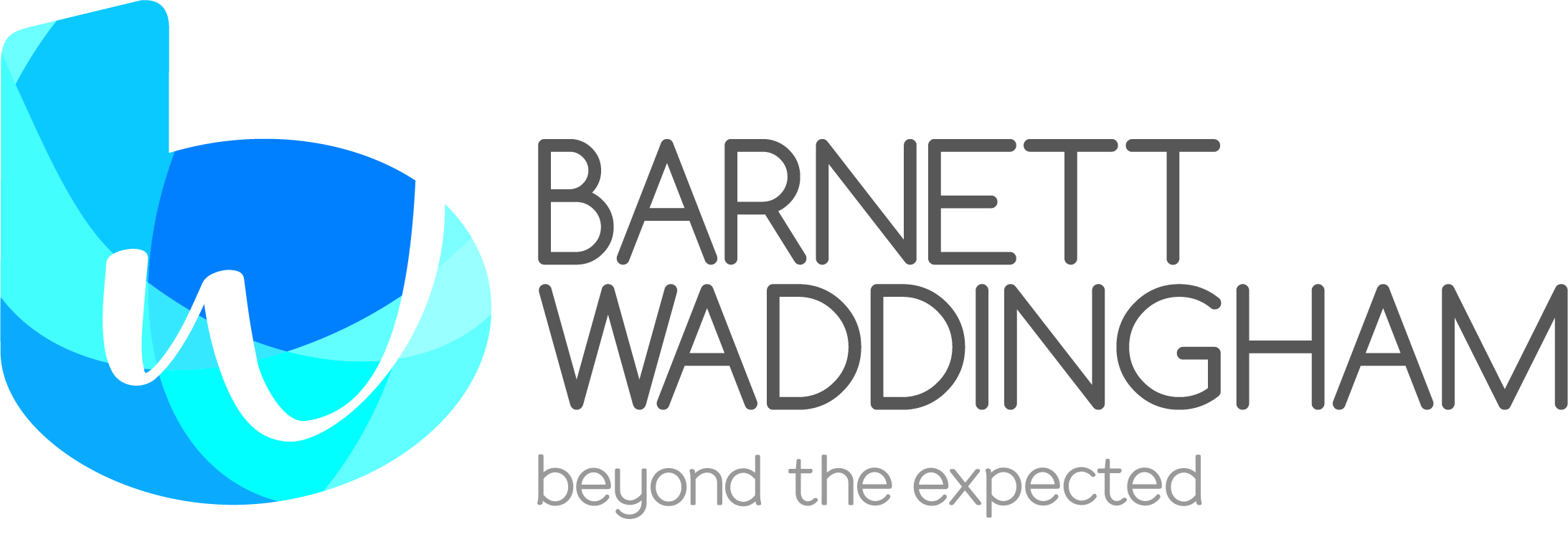Join us at this year’s GIRO Conference and hear from some of the most dynamic figures in our domain.
Our online programme includes access to all 4 plenaries and 6 selected workshops.
Take a look at the online schedule to see the complete range of sessions we have lined up over the 3 days.
For the full in-person programme, see GIRO Conference 2023.
Reserving for climate change: 2023 Working Party Update (PDF, 1.75 MB)
By the Climate Change Reserving Working Party
Marcus du Sautoy is Professor of Mathematics at the University of Oxford where he holds the prestigious Simonyi Chair for the Public Understanding of Science and is a Fellow of New College.
Du Sautoy has received a number of awards for his work including the London Mathematical Society’s Berwick Prize for outstanding mathematical research and the Royal Society of London’s Michael Faraday Prize for ‘excellence in communicating science’. He has been awarded an OBE for his services to science and was recently elected a Fellow of the Royal Society.
His mathematical research has covered a great many areas including group theory, number theory, and model theory, but he has been equally successful in his promotion of mathematics to the general public. He has published a number of best-selling, non-academic books and appears regularly on television and radio.
Dr Tara Shine is an expert in the field of climate change and climate justice, with a passion for communicating her science and her positive vision for the future.
She has advised world leaders, governments, and civil society organisations on climate change, environmental policy, and development assistance. Formerly a climate negotiator at the UN and Special Advisor to the Mary Robinson Foundation - Climate Justice and Adviser to the Elders, Tara is co-Founder and Director of the award-winning sustainability business, Change by Degrees.
Tara is Chair of the Board of Trustees of the International Institute for Environment and Development (IIED) and co-facilitator of a science-policy dialogue under the UN Climate Convention. Tara’s book ‘How To Save Your Planet One Object At A Time’ was published by Simon and Schuster in April 2020, and is a guide to sustainable living told through everyday objects.
Tara enjoys getting out into the wild to explore environmental issues first-hand. At home in any location from the deserts of Mauritania to the rainforests of Borneo, Tara enjoys meeting people to hear their stories and experiences and to champion the solutions they need. Most recently she travelled to Antarctica with 90 women scientists as part of Homeward Bound, a global leadership programme for women in science which aims to find better ways to care for our global home. Tara is part of the visibility and science communications faculty for Homeward Bound.
Dr Timothy Less leads on geopolitical risk analysis at the Centre for Geopolitics at the University of Cambridge. He also works as a private consultant to the corporate and public sectors. Previously, he served as a diplomat and policymaker at the Foreign and Commonwealth Office and as a country risk analyst in the City. He holds an MSt in International Relations and a PhD in modern history from the University of Cambridge.
| Activity | Time | Details |
|---|---|---|
| Welcome to the GIRO Conference | 14:10 - 14:20 | |
| Research update | 14:20 - 14:50 | |
| Plenary 1 | 14:55 - 15:55 | Dr Tara Shine, Chair of the International Institute of Environment and Development and Director of Change by Degrees |
| Workshop A2 | 16:05 - 16:55 | Current issues in capital modelling Read more |
This session is a follow-up to the speakers’ session from the 2022 General Insurance Spring Conference. Here they will cover some of the recent discussion points and conclusions, covering topics such as:
Ajay Chhabra, James Toller, and Girinker Aggarwal, Members of the Capital Research Group | ||
| Workshop A3 | 16:05 - 16:55 | Building open-access tools for catastrophe modelling and parametric insurance Read more |
In this session, James McIlwaine uses his experience as the lead actuarial developer of the Insurance Development Forum (IDF)/Oasis Risk Explorer to explore how open-access data and spatial sampling can be used to build simple catastrophe models. He will also look at how free-to-use tools can be used to close the protection gap in low and middle-income countries. He will cover the basic components of catastrophe models and how they’re set up, before introducing what parametric insurance is and why it’s useful. Additionally, he will provide a live demo of the tool and a few of its uses. The Risk Explorer is a free, online, open-source risk modelling platform designed to educate non-expert users in the basic components of catastrophe modelling and parametric insurance. The tool is able to model worldwide tropical cyclone risk as well as a number of other perils. James McIlwaine, Maximum Information | ||
| Workshop A4 | 16:05 - 16:55 | To price flood risk-reflective or not? A key question facing the insurance industry and government Read more |
UK flood insurance is currently based on risk-reflective pricing mechanisms, with highest risk homes subsidised through Flood Re. The current Flood Re solution provides affordable residential flood cover, supported by levies on home insurers. Flood Re ceases operating in 2039, after which all homes currently subsidised are likely to revert to risk-reflective pricing, becoming unaffordable for many. While risk-reflective pricing and the current Flood Re solution both have their drawbacks, there are other options. This session examines strengths and weaknesses of 2 insurance pricing extremes – fixed tariff and fully risk-reflective – along with the current Flood Re solution. It also considers how flood insurance pricing operates in different markets around the world, including issues such as the:
Richard Stock, Hymans Robertson, Laura Evans, Flood Re, and Marcus Schofield, Marcuson Consulting | ||
| Workshop B1 | 17:05 - 17:55 | Why isn’t machine learning more transparent in personal lines pricing? Read more |
There is widespread interest in machine learning (ML) and widespread interest and concern in transparency of these techniques and fairness to customers. How can we address these concerns while maximising the value and opportunity of these approaches? This session will address key questions such as:
This session will include a presentation on new techniques and enhancements and practical guidance on how they can be implemented as part of streamlined pricing processes. This will be a high-level session rather than a technical one. It should be of interest to actuaries at all levels with an interest in ML including senior actuaries and team leaders interested in maximising use of ML in pricing and analytics. Neil Chapman and Rachael McNaughton, WTW | ||
| Workshop B3 | 17:05 - 17:55 | Insurance for humanitarian crises Read more |
Disaster risk financing (DRF) is a small but rapidly growing space where parametric insurance products are used to provide protection for people in the developing world. Within this arena, START Ready is a new and unique financing mechanism that uses advanced planning so that funding can be rapidly released when needed most. START Ready is now in its second year of operation, and after much hard work has secured (re)insurance to make more efficient use of the funds available. DRF has the potential to revolutionise the way we respond to humanitarian crises, but it has many challenges. In this session, the speakers will reflect on the experiences of 2 actuaries supporting START Ready on their journey: one sitting on the governance committee and another supporting START on procuring insurance. The session will:
Andrew Jinks, Government Actuary's Department and Rachel Haldane, Start Network | ||
| Workshop B7 | 17:05 - 17:55 | How can actuaries best add value to claims? Read more |
Claims and actuarial are 2 teams that often end up working together but finding a middle ground between the 2 perspectives can be a challenge. The speakers will unpack the role of working within claims as a claims actuary, answering:
The speakers will also share their research into using analytics to better understand claims experience, including:
Charlie Stone and Melissa Tam, LCP | ||
| Activity | Time | Details |
|---|---|---|
| Plenary 2 | 09:00 - 10:00 | Professionalism Read more |
This talk will explore actuarial professionalism and the impacts of the code, using real life implications to provoke discussion. There will also be an update from the IFoA on professional issues. Richard Chalk and Sonal Shah | ||
| Workshop C3 | 10:45 - 11:35 | Zero to hero: can we build a capital model in an open-source framework, from scratch, using ChatGPT? Read more |
Using open-source software to build a capital model is a problem that has not been widely tackled across the industry. The majority of capital models are built in proprietary software and can be relatively ‘black box’ in their nature. This engaging session will:
Oliver Grossman and Isabelle Williams, LCP | ||
| Workshop C4 | 10:45 - 11:35 | Reserving for climate change: current developments Read more |
In its ‘boiling the ocean?’ workshop at GIRO Conference 2022, the Climate Change Reserving Working Party explored how climate change would impact the work of reserving actuaries. The working party surveyed current attitudes and approaches and unpacked key questions for reserving actuaries. The changes to come will be far-reaching, complex, and increasing over time, reflecting the changing physical environment, society’s transition to a low-carbon global economy, and developments in climate litigation. The working party will share output from its 3 main workstreams, which are:
The profile and urgency of the challenge for reserving actuaries has increased since last year, with continuing wildfires, record-breaking heatwaves, fast-moving developments in climate litigation, and the high-profile withdrawal of reinsurance capacity in major peril-regions. Also, the new TAS 100 includes an explicit reference to climate change. This workshop is aimed at general insurance reserving practitioners and will not assume an in-depth knowledge of climate change. James Orr, PRA - Bank of England; Alex Marcuson, Marcuson Consulting and Josie Durley, Nephila | ||
| Workshop C5 | 10:45 - 11:35 | Ethical decision making Read more |
An introduction to some different ethical frameworks, using case studies and discussion, to think about why it can happen that 2 people can come up with contradictory solutions to a problem while both (correctly) claiming they are acting ethically. This will then be applied to various work situations. Richard Winter | ||
| Plenary 3 | 11:45 - 12:45 | What if? 10 geopolitical risks to keep you awake at night Read more |
The presentation will identify the 10 most serious geopolitical risks facing the world right now and the consequences should any of them come to pass. Dr Timothy Less, Centre for Geopolitics at the University of Cambridge | ||
| Workshop D1 | 16:30 - 17:20 | Solvency II Practical Review Working Party Read more |
Solvency II was implemented at the start of 2016 following 15 years of thorough consultation. However, practical issues with its application came to light. In addition to this, the Treasury Select Committee carried out an inquiry on the possible modifications to Solvency II post Brexit. The working party’s initial scope focused on carrying out a practical review of the Solvency II regime to help guide these modifications. On 17 November 2022, the government announced its final proposals and the reformed Solvency II regime will be known as ‘Solvency UK’. The renewed working party scope was to gain a clarity on the changes and possible market impact of moving from Solvency II to ‘Solvency UK’ on the non-life sector. This talk will present the working party’s findings and additional points to consider in transitioning to Solvency UK Amrita Pattni, Guy Carpenter | ||
| Workshop D3 | 16:30 - 17:20 | Two worlds colliding: the role of pricing actuaries among data scientists: industry perspective Read more |
As expert modellers, pricing actuaries over the last few years have been keen to upskill in various coding languages and study alternative modelling algorithms for predicting claims experience, especially in personal lines insurance. This is all well and good in an analytical, research, and development environment. But what if you want to implement all this knowledge into live pricing? The speakers in this session will showcase how actuaries and data scientists can collaborate to produce market leading pricing algorithms. They will celebrate diversity in pricing teams, leveraging their own experiences (from actuaries in the business and data scientists), elements of research around data-driven culture, and parts of the Actuaries’ Code. Topics discussed will range from the tech stack to team structure and everything else in-between. Kristina Hegarty, Tom Beckett, Paul Shannon, Hastings Direct | ||
| Workshop D4 | 16:30 - 17:20 | Emerging risk: a geopolitical perspective Read more |
Effective enterprise risk management should ensure ongoing review and improvements to existing risk frameworks by creating an emerging risk sub-framework to account for emerging risk identification and to identify, assess, quantify, represent, and communicate these types of risks and their associated uncertainties so that firms can minimise the strategic shocks associated with emergencies that arise from these types of risks. This webinar provides key insights into key global geopolitical issues and explores how risk functions can contribute to more effective decision-making in their firms on this key issue. Lawrence Habahbeh, HedgeGenomics | ||
| Workshop E5 | 17:30 - 18:20 | Non-life share price forecasting using company financials Read more |
This workshop will explore the different methods that can be used to value the equity of a non-life insurer for the purposes of determining a target share price. These methods are being typically adopted by sell-side equity analysts working within equity research houses for the purposes of buy, hold, and sell recommendations. Topics include:
Richard Shaw, Consultant | ||
| Workshop E6 | 17:30 - 18:20 | When you talk, make it count Read more |
Building relationships and communicating effectively is a skill like any other. It can be learned, developed, and fine-tuned. In this session, we will highlight and explore simple adjustments that will allow you to be more effective and more productive in your meetings, conversations, and professional relationships. Sarah Hanson, Interactifs UK Limited | ||
| Workshop E7 | 17:30 - 18:20 | With great power comes great responsibility: professionalism and ethics for actuaries in data science Read more |
In the ever-expanding world of data science, machine learning, and AI, actuaries have access to unprecedented modelling power and opportunities for efficiency in their work. But could actuaries be responsible for the next big data privacy scandal? Is following the letter of the law enough when it comes to AI? Just because you can, does it mean you should? Using real examples and case studies, the Data Science Community – Professionalism, Regulation and Ethics Working Party explores the ethical use of these tools and talks through some of the regulatory and professional obligations actuaries should consider before embracing them. Murray Lidgitt, Hymans Robertson; Hazel Davis, Sabre | ||
| Activity | Time | Details |
|---|---|---|
| IFoA CEO update | 09:30 - 09:50 | Read more |
Ben Kemp, Chief Executive Officer (Interim) | ||
| Workshop F1 | 10:00 - 10:50 | Update from the Ogden Discount Rate Working Party Read more |
The Ogden discount rate is crucial for insurers and reinsurers for pricing and reserving for UK bodily injury claims. This year, the Ministry of Justice issued a call for evidence on the possibility of introducing a dual or multiple rate. This coupled with the deadline for the new rate to be announced in 2024 is causing many CEOs, CFOs, and chief actuaries to query what the rate should be now and for year-end, and whether it will be a single or multiple rate. The working party will share:
Andrew Corner, PwC; Mohammad Khan, PwC; Grant Mitchell, Soteria Insurance | ||
| Workshop F2 | 10:00 - 10:50 | Are we the baddies? Read more |
This session will provide a wide-ranging and thought-provoking discussion of the social impact of the insurance industry. These include the:
Steven Fisher, Rachel O’Connell, Mathilde Haran, Jamie Brennan, Richard Winter, Insurance as a Force for Social Good Working Party | ||
| Workshop F3 | 10:00 - 10:50 | Smoothness and monotonicity constraints for neural networks using ICEnet Read more |
Deep neural networks have become an important tool for use in actuarial tasks. This is due to the significant gains in accuracy provided by these techniques compared to traditional methods and the close connection of these models to the generalised linear models (GLMs) used in industry. In this work Old Mutual Insure:
Old Mutual Insure calls its proposed method ICEnet to emphasise the close link of its proposal to the individual conditional expectation (ICE) model interpretability technique. Ronald Richman, Old Mutual Insure | ||
| Awards | 11:45 - 12:00 | |
| Plenary 4 | 12:00 - 13:00 | Around the world in 80 games Read more |
Marcus will explore the maths behind the games we love to play, and why we love to play them. Spanning millennia, countries, and cultures, he will explain how maths and games have been integral to human psychology and culture. And he’ll also offer a few mathematical strategies to give you an edge when you next play. Dr Marcus du Sautoy | ||
| Closing remarks | 13:00 - 13:05 | |

hyperexponential has built the world’s first pricing decision intelligence platform for insurers, hx Renew. It reimagines the flow from data to decision, creating a feedback loop that continuously strengthens the data assets, insights, and decisions of insurers and ultimately their bottom line.
Some of the most established insurance brands write over $22bn of premium annually in hx Renew. hyperexponential is backed by Highland Europe, a global leader in software innovation. The company is headquartered in London, with an office in Warsaw.

Dataiku is the platform for Everyday AI, enabling data experts and domain experts to work together to build data into their daily operations, from advanced analytics to generative AI. Together, they design, develop and deploy new AI capabilities at all scales and industries.

Gallagher Re is the full service global reinsurance broking division of Gallagher, one of the world’s largest insurance brokerage, risk management and consulting firms. We are a team of over 2800 reinsurance experts providing unparalleled reinsurance expertise.
The power of Gallagher Re is our ability to combine the expertise of a highly talented team with market-leading analytical capabilities and insights. We are experts in analysing and structuring reinsurance across all lines of business with an experienced team of catastrophe modellers, actuaries and data scientists.

Akur8’s next generation end-to-end insurance pricing software enables non-life actuaries to make better decisions, faster. Our modular pricing platform automates technical and commercial premium modelling: time spent modelling is reduced by 10x, the models’ predictive power is increased by 10% and loss ratio improvement potential is boosted by 2-4%.

Earnix is the premier provider of composable intelligent solutions designed to transform how global insurers are run. Earnix unlocks value across all facets of underwriting, pricing, rating and product personalization, connecting with customers and breaking away from the status quo imposed by legacy, single systems. Earnix’s solutions offer systemized, enterprise-wide value with ultra-fast ROI.

LCP InsurSight is an innovative, integrated analytics and reserving platform. It is being used by some of the largest London Market and international insurers to assess over £100bn of insurance reserves.
InsurSight significantly reduces the time taken by insurers to identify emerging trends in their data and set reserves. InsurSight tightly integrates actuarial modelling, robust governance and team collaboration – transforming how insurers analyse their data.
InsurSight uses artificial intelligence to automatically detect, highlight and prioritise the most important issues. This provides management with faster and more accurate feedback on changes to their risk profile, and help carriers make better strategic decisions.

Moody’s Analytics provides financial intelligence and analytical tools to help business leaders make better, faster decisions. Our deep risk expertise, expansive information resources, and innovative application of technology help our clients confidently navigate an evolving marketplace. We are known for our industry-leading and award-winning solutions, made up of research, data, software, and professional services, assembled to deliver a seamless customer experience. We create confidence in thousands of organizations worldwide, with our commitment to excellence, open mindset approach, and focus on meeting customer needs.

Arthur is an award-winning recruitment consultancy specialising in the insurance industry.
Our consultants are committed to delivering tailored talent solutions for the Arthur network and supporting people throughout their careers.
As a trusted partner to leading names within the industry, our specialist team supports the industry by introducing people at the beginning of their career to C-Suite. We combine a deep understanding of business needs and culture to deliver results that last.

Aon’s Strategy & Technology Group brings together insight and software solutions to help (re)insurers make better business decisions. We deliver highly customised solutions focused on exploring profitable opportunities, boosting enterprise efficiency and driving financial health to help clients build and manage more resilient companies across Property & Casualty and Life.

Barnett Waddingham (BW) is a leading independent UK professional services consultancy with expertise across risk, pensions, investment and insurance. With freedom to take a long-term view, BW builds strong, trusted relationships, including with almost 25% of FTSE 100 and over 15% of FTSE 350 companies.

Bolton Associates is the largest boutique GI actuarial specialist in the market.
Specialising in actuarial management structures and team builds, along with more generic individual hires, Bolton Associates partners with clients to establish long-lasting actuarial teams of excellence.
We also represent individuals to the market, sourcing that perfect role with clients that value our introductions

Capita’s actuarial team provide cost-effective delivery capacity and agility across the insurance and pensions industries and beyond. We can resource your teams, deliver your projects or manage your actuarial function. You can rely on our extensive industry and actuarial expertise to ensure you have the support you need, when you need it.
www.capita.com/expertise/industry-specific-services/actuarial-services

CyberCube was created with the singular mission to provide best in class cyber risk analytics to the Commercial P&C insurance industry.
Crucially, we enable innovation by quantifying, in financial terms, cyber risk for our clients.
Through risk quantification, our clients can make faster, more informed cyber risk decisions

We are actuaries, problem solvers, and strategic thinkers. As a highly innovative team we are passionate about understanding how the world of business-critical modelling is evolving, and we apply our mathematical skills, professional expertise, and intelligent automation platform Psicle to help our clients navigate their transformational journey with confidence.

Eames Consulting is a contingent recruitment business with international reach, specialising at the mid-to-senior level of the insurance, financial services, and technology markets.
We’ve supported clients across the insurance sector for over 20 years, guiding their talent strategies and hiring talent. In this time, we've amassed a loyal, highly-skilled candidate network and partnered with companies across the world, from small start-ups to international organisations
Our consultants are focused on specialist areas of their dedicated market spanning the Life and Non-Life markets.
Through deep and evolving sector knowledge, we embed ourselves as long-term strategic partners to our clients. Guiding people, shaping talent, building partnerships, and creating success is what we do.

The Emerald Group provide holistic recruitment solutions to firms seeking skilled candidates within the Actuarial, Insurance and Pensions markets, with services encompassing Diversity & Inclusion, Market Mapping, and Salary Surveys/Market Intelligence.
We build personal, lasting relationships by offering an independent and consultative approach from our highly trained and experienced consultants.

FIS Insurance Risk Suite is a highly automated platform for actuarial modelling and risk management with integrated capabilities for pricing, valuation, and projection. Our scalable, secure technology enables you to model and analyse complex risks across your enterprise, in a tightly governed, high-performance environment – on-premise or through the cloud.

Goodman Masson’s specialist Actuarial Division is a true market leader in the Insurance and Pensions sectors, well known and respected for placing experienced Actuaries and Part-Qualified Actuaries into our extensive client base for over 16 years.
We have significant expertise in all of the key actuarial specialisms focusing on: General Insurance, Life insurance, Pensions Consulting and Investment Consulting. We provide actuarial candidates for permanent, day-rate and fixed-term contract assignments throughout the UK, France and New York.

HFG is a specialist Insurance recruitment consultancy working exclusively with talent throughout the General Insurance, Life Insurance, Re-Insurance, Broking and Lloyd’s markets.
We have over 20 years’ experience placing actuaries into a broad range of opportunities into the UK and international markets from our London, Singapore and Hong Kong offices.

We combine decades of experience with cutting-edge technology to help insurers and reinsurers embrace challenges and change.
Our team supports UK and international clients through a wide range of services including risk and capital management, investment and ALM, and product pricing and underwriting. Visit us at stand A13 to find out more.

At J.P. Morgan Asset Management, we believe investors deserve an expert global partner they can trust to step up and deliver strong outcomes. Our perspective draws on knowledge earned over a century of investing through every market cycle. From our vantage point, we strive to see correlations others miss and seize opportunities that our global, connected view can deliver. Our clients trust us to manage $2.5 trillion in assets to secure what matters most to who they serve.
am.jpmorgan.com/gb/en/asset-management/institutional/investment-strategies/insurance

As one of the world’s leading recruitment businesses that’s been specialising in the Actuarial profession since 2005, we have the experience, international network, and market knowledge to find your ideal job or hire. We’re here to provide support throughout your career across Life, General Insurance, Reinsurance, and Pensions and Investments.

Optalitix is an award-winning insurtech that develops software solutions for insurers and banks to manage underwriting and pricing risks. We use Excel, Python, R, or any other model in our fast, scalable underwriting workbench to improve risk management, increase profitability and reduce development costs in a competitive digital environment.

At PwC, our purpose is to build trust in society and solve important problems. We’re a network of firms in 152 countries with over 327,000 people who are committed to delivering quality in assurance, advisory, and tax services. Find out more and tell us what matters to you by visiting us at www.pwc.co.uk

Established in 2002, Sellick Partnership has built up an enviable reputation in the market as a leading provider of expert recruitment services across the UK providing to the public, not-for-profit and private sectors. We support all candidates we work with, offering advice and assistance at every stage of the recruitment process to ensure they are fully informed at every step of the way. We work in genuine partnership with both our clients and candidates in the actuarial sector, listening to their needs and matching their skills and experience to the most suitable actuarial roles.